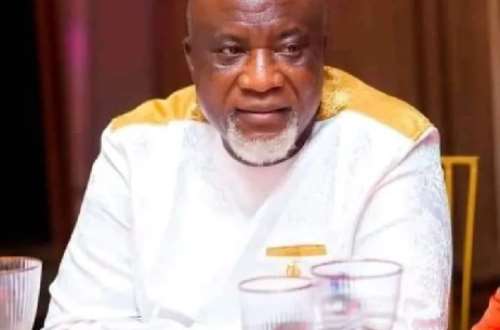Alan Kyerematen’s vision for women’s empowerment is becoming increasingly prominent as the Movement for Change Caravan Tour progresses through Ghana’s Volta Region. Leading the campaign, Hopeson Adorye unveiled an ambitious objective: if elected, Kyerematen intends to create a government composed of 50% women, underscoring a deep-seated commitment to gender equality. This statement was reported by JoyNews and monitored by ModernGhana News during the fourth day of the caravan’s visits. Adorye articulated that this pledge transcends mere political rhetoric; it represents a robust initiative aimed at altering the leadership landscape in Ghana. By asserting that “this is not just talk; it’s a commitment to change the narrative around women in leadership,” Adorye encapsulated the promise of a new direction under Kyerematen’s potential administration.
Many observers view Kyerematen’s plan as a significant leap forward for gender representation in governance, often describing it as “the real change we’ve been waiting for.” The commitment to gender equality in leadership is seen as crucial for social transformation, as it can help break down historical barriers that have marginalized women in political spaces. Adorye further stressed that political reforms are necessary to ensure women are supported in retaining their parliamentary seats. He argued that the current political framework disproportionately benefits male candidates, calling for systemic adjustments to foster a more equitable environment for women in politics.
In addition to legislative reforms, the Kyerematen campaign seeks to uplift rural women, recognizing their critical roles in their communities. Adorye acknowledged this demographic’s contributions and committed to ensuring that their work is valued and supported in Kyerematen’s administration. He pointed out, “We must empower rural women because they are the backbone of our communities,” which highlights a broader mission not only to promote gender equity at the national level but also to enhance the livelihoods of women in grassroots settings. This two-pronged approach aims to ensure that the empowerment of women is reflected at all levels of society.
The initiative emphasizes the transformative potential of political representation, which can lead to policies that address the unique challenges facing women, particularly those in rural areas. By setting a precedent for equal representation in governance, Kyerematen’s government could serve as a model for how inclusive policies can result in meaningful change. Adorye’s comments resonate with a growing movement advocating for women’s rights, which sees the inclusion of women in decision-making roles as not only a moral obligation but a necessary strategy for national development.
As the caravan tour continues, it becomes increasingly clear that Kyerematen’s pledges are garnering support from various segments of the population who are eager for substantial change in leadership dynamics. His proposed approach is being seen not only as a political strategy but also as a framework for fostering societal development through gender equity. This growing momentum could significantly impact the upcoming elections, as it reflects a broader desire for change among voters who prioritize women’s empowerment and leadership roles.
In conclusion, Kyerematen’s vision and Adorye’s advocacy for gender equality and the empowerment of rural women signal an emerging shift in the political narrative in Ghana. The proposed 50% government representation of women is more than a political promise; it is a commitment to redefining governance in a way that truly reflects the diverse fabric of society. As the caravan tour progresses, it harnesses the aspirations of many Ghanaians who are looking for leaders willing to break from tradition and create a more inclusive and equitable political landscape. The call for reforms and support for rural women underscores a pivotal shift towards recognizing and valuing the contributions of all citizens in shaping the nation’s future.














